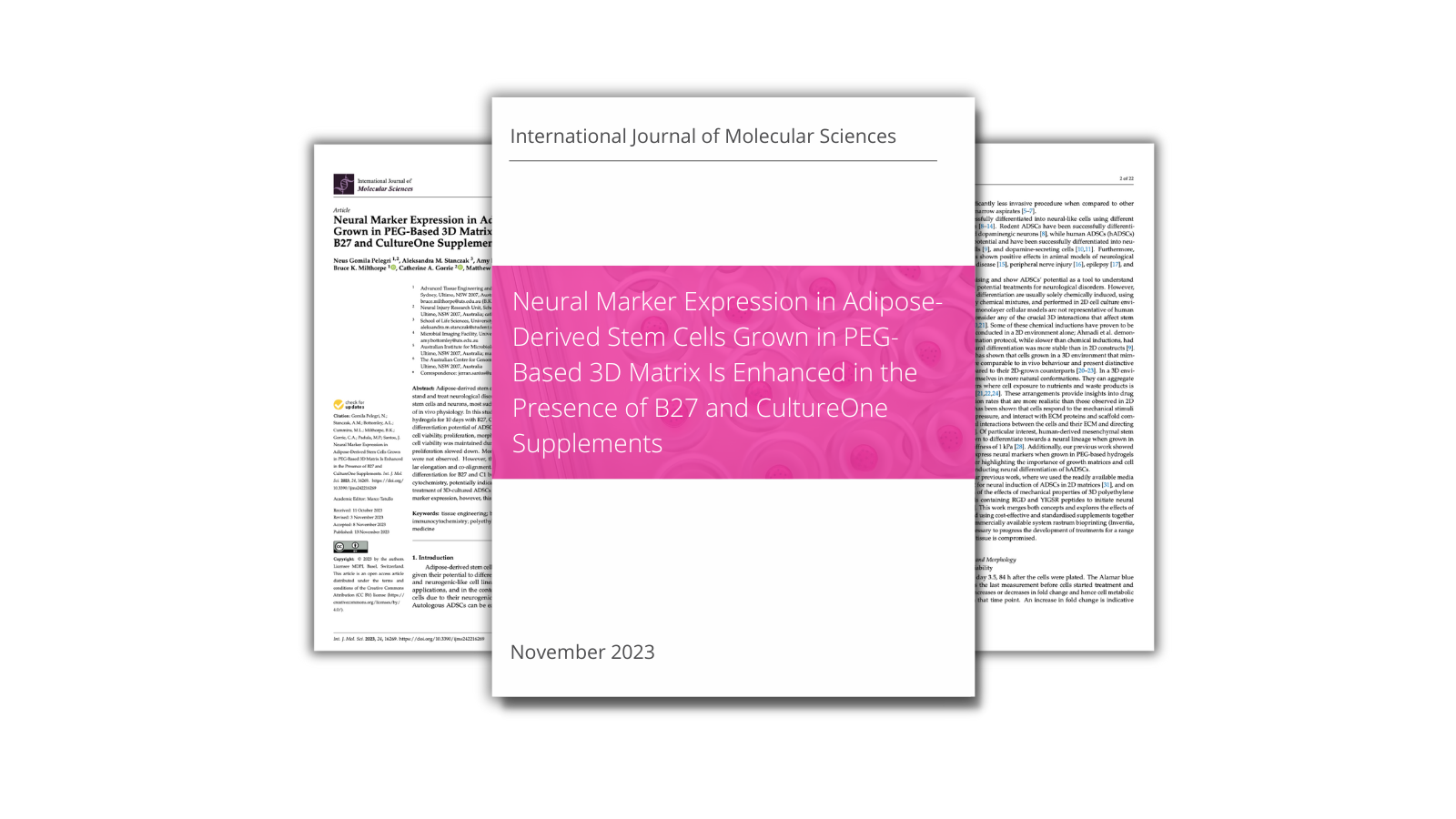
Neural Marker Expression in Adipose-Derived Stem Cells Grown in PEG-Based 3D Matrix Is Enhanced in the Presence of B27 and CultureOne Supplements
Abstract
Adipose-derived stem cells (ADSCs) have incredible potential as an avenue to better understand and treat neurological disorders. While they have been successfully differentiated into neural stem cells and neurons, most such protocols involve 2D environments, which are not representative of in vivo physiology. In this study, human ADSCs were cultured in 1.1 kPa polyethylene-glycol 3D hydrogels for 10 days with B27, CultureOne (C1), and N2 neural supplements to examine the neural differentiation potential of ADSCs using both chemical and mechanical cues. Following treatment, cell viability, proliferation, morphology, and proteome changes were assessed. Results showed that cell viability was maintained during treatments, and while cells continued to proliferate over time, proliferation slowed down. Morphological changes between 3D untreated cells and treated cells were not observed. However, they were observed among 2D treatments, which exhibited cellular elongation and co-alignment. Proteome analysis showed changes consistent with early neural differentiation for B27 and C1 but not N2. No significant changes were detected using immunocytochemistry, potentially indicating a greater differentiation period was required. In conclusion, treatment of 3D-cultured ADSCs in PEG-based hydrogels with B27 and C1 further enhances neural marker expression, however, this was not observed using supplementation with N2.